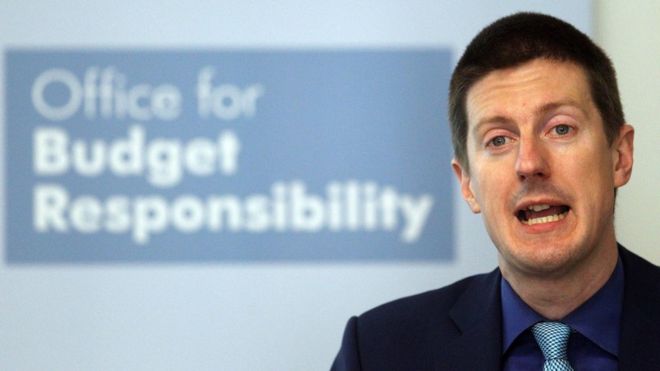You have to feel the Office for Budget Responsibility's pain.
The Act of Parliament which created the OBR said that its forecasts had to be based on government policies and "may not think about what the outcome of any substitute policies would be".
And below you see the issue facing the OBR in predicting what would come about to the economy as well as the public finances with the following 5 years.
Government policy is actually triggering Article fifty in March 2017, which means the UK is going to leave the European Union in March 2019.
The OBR will have to anticipate what'll happen to the economy in 2020-21 and 2019-20 without understanding what deal type is going to be completed with the EU, therefore it will not understand if the UK will likely be a part of the single market or maybe the traditions union.
The UK government doesn't officially have a policy on what outcome it'd want or even what the foundation will be for the negotiations of its, above the ambition to get the absolute best deal for the UK.
The very first 3 years of the forecast should not be way too problematic - we currently have the Bank of England's forecasts because of this period.
However the last 2 years might be debatable. Several commentators, like Paul Johnson that heads up the Institute for Fiscal Studies, recommended that there may be 2 forecasts for the previous 2 years, one based on staying in the single market and one based on giving it, but that could fall foul of the rules against considering substitute policies.
And so while there might be exciting details of the government's fiscal policy announced in the Autumn Statement, probably the most fascinating part is going to be found in what the OBR does or perhaps does not tell us about the government's plans for the future connection of ours with the EU.
And below you see the issue facing the OBR in predicting what would come about to the economy as well as the public finances with the following 5 years.
Government policy is actually triggering Article fifty in March 2017, which means the UK is going to leave the European Union in March 2019.
The OBR will have to anticipate what'll happen to the economy in 2020-21 and 2019-20 without understanding what deal type is going to be completed with the EU, therefore it will not understand if the UK will likely be a part of the single market or maybe the traditions union.
The UK government doesn't officially have a policy on what outcome it'd want or even what the foundation will be for the negotiations of its, above the ambition to get the absolute best deal for the UK.
The very first 3 years of the forecast should not be way too problematic - we currently have the Bank of England's forecasts because of this period.
However the last 2 years might be debatable. Several commentators, like Paul Johnson that heads up the Institute for Fiscal Studies, recommended that there may be 2 forecasts for the previous 2 years, one based on staying in the single market and one based on giving it, but that could fall foul of the rules against considering substitute policies.
And so while there might be exciting details of the government's fiscal policy announced in the Autumn Statement, probably the most fascinating part is going to be found in what the OBR does or perhaps does not tell us about the government's plans for the future connection of ours with the EU.

No comments:
Post a Comment